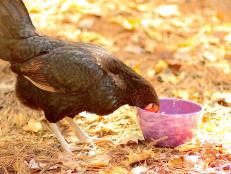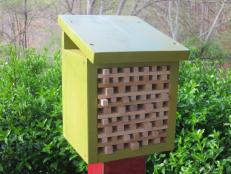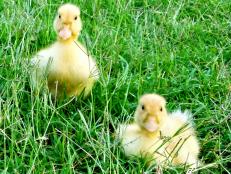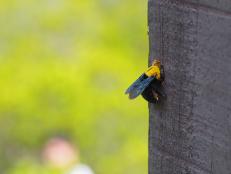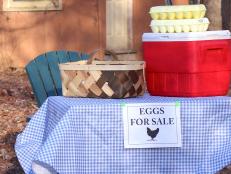Chicken Coop Essentials


Starting a new backyard chicken coop can be a lot of work. Addressing ordinances, building a coop, finding the right birds … Didn’t someone say keeping chickens was supposed to be easy? The good news is, if you’ve done all the above, the hard part is over. All it takes is the right gear to make keeping chickens easier than caring for many household pets.
In a well-equipped chicken coop, the hardest thing you’ll have to do, most days, is remember to collect the eggs. Here are some essentials for keeping your egg-producing palace low-maintenance.
Hanging feeder. Chickens will eat out of anything you put in front of them, but using plasticware or metal bowls means you’ll be refilling them all too often. Plastic or galvanized steel hanging feeders are inexpensive and can be found in a variety of sizes to accommodate any size brood. I have a 15-pound capacity hopper and only need to refill it about once a week. The other advantage of the hanging feeder is that it positions the feed high enough off the ground to protect it from moisture and rodents and also cuts down on the mess made by sloppy chickens.
Waterer. Keeping fresh water available to the flock is essential. Chickens can only survive a couple of days without hydration, so forgetting to refill an undersized bowl every day can spell catastrophe. Large capacity waterers are inexpensive and easy to use, but I can do you one better. An automatic dog waterer connected to a garden hose will provide consistently fresh water and completely eliminates the need to refill. Mount the dish six inches or so from the ground to keep grit or bedding from being kicked into the bowl. Make sure it’s sturdy. Chickens love to perch and the edge of the waterer is as good a place as any for an indiscriminate chicken.
Utility lamp. Chickens do just fine in cold weather, but they aren’t going to complain if you throw a little more heat their way with an overhead lamp. In the the winter months, when daylight is at a premium, a light left on in the coop will also encourage egg production.
Storage bins. Keep stored feed or scratch dry at all times. Moldy feed poses a health risk to chickens and should be disposed of immediately. Not only will a bin with a tight lid keep moisture at bay, but it also keeps hungry rodents out. My storage bins have lasted many years, although something has been chewing at the lid of my feed bin for the last couple of months. I suspect a breach is imminent, but the would-be invader has been working on it so long that I’m kind of rooting for the little guy at this point.
Egg basket. Ever forget you put eggs in your pocket and sat down? I have. Trust me. Get a basket.
Egg cartons. When the chickens first arrive, you might think you’ll be eating those eggs as fast as they lay them, but they’ll get ahead of you fast. A good supply of egg cartons makes it convenient to store or, better still, give away your surplus. Egg cartons aren’t too expensive to buy, but if you put out the word to friends and neighbors, they will be happy to save them for you. They will also be delighted if some of those come back to them full of eggs. Just sayin’.






